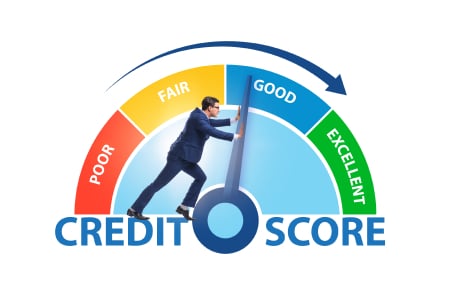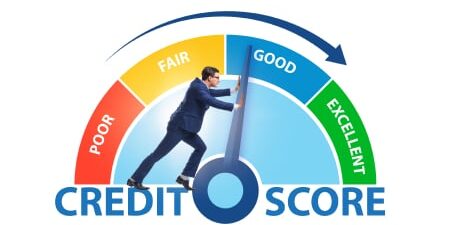
Credit scores are a key part of financial systems in the UK. MoneyPlus explains how they work and what types of actions can impact your score.
Credit reports play a vital role in private financial agreements in the UK. Without a credit score, the average person in the UK wouldn’t be able to apply for a mortgage, a vehicle finance loan or even a credit card. With this in mind, understanding what credit scores are and how they work is essential for people looking to take out credit.
In this guide, we explore how credit scores work here in the UK. We’ll also provide our top tips for checking and improving your score and highlight some things you might want to avoid in order to best protect your score. This will include explaining how some debt management solutions can impact your credit score.
How do credit scores work?
As explained in our guide on how credit scores can be impacted by debt management plans, a credit score is a number that represents your creditworthiness. This is to say, determined by your credit history, this figure gives a general indication of your trustworthiness when it comes to applying for future credit.
These scores are put together by credit reference agencies such as Experian, Equifax and TransUnion, and usually range from 0 to 999. Agencies collect data from various sources, including lenders, utility companies and public records, to generate credit reports, which in turn determine your credit score. The higher your score, the more trustworthy you are in the eyes of lenders. Naturally, this means a high score will give you more options (and make it more likely that you’ll be approved!) when it comes to taking out loans, credit cards, car finance options and applying for mortgages. A high score can also give you access to larger sums of credit and lower interest rates on the loans you take out. However, how do you find out what your current credit score is?
How do you check your credit score?
Well, in the UK there are three simple ways to check your credit score. These are:
- Check with the credit reference agencies
One way to check your credit score is to go directly to a credit reference agency. Most of the major agencies in the UK – including the likes of Experian, Equifax and TransUnion – provideonline services where you can request your credit report and score for free. If you’re looking for a comprehensive credit score, it’s a good idea to request your credit report from all three of the major agencies. This is because they all use slightly different scoring systems based on varying levels of data held about your finances. By accessing all three, you’ll have the clearest idea of what your true credit score looks like. Bear in mind that while these agencies will provide your basic credit file for free, they may charge for other services like credit score monitoring. - Use a free credit score tool
Aside from going directly to the credit agencies, you can also find out your credit score by using a free online tool. These third-party companies, which include ClearScore and Checkmyfile, provide a quick and user-friendly way to check your score without having to go through official processes.
- Check with current banks/lenders
A really quick way to check your credit score can be to simply ask your bank or a creditor. Many of these organisations offer their customers free access to their credit scores as part of their online banking services. However, it’s worth noting that unlike when you go directly to a credit agency, banks and other lenders are not legally required to provide a copy of your credit report when asked.

“It’s made a big difference to me and how I live.“
— Helen, Aberdeenshire *
Read Helen’s story…
How do you improve your credit score?
As touched on above, your credit score is far more than just a financial label. Improving it actually enables you to unlock better opportunities when it comes to loans, credit cards and mortgages. For this reason, whether you’re just starting your credit journey or looking to fix past financial missteps, you should always have one eye on improving your score. Below, we take a look at a number of simple strategies that will help you achieve this.
- Review your reports
You should always start by checking your credit report for errors. Although rare, mistakes do happen, and even the smallest of inaccuracies on your credit report can significantly impact your credit score. To do this, request credit reports from the big three credit agencies and then go over them in detail, ensuring all personal information is accurate. If you notice any errors, dispute them with the agency in question.
- Register to vote
This is arguably the easiest way to improve your credit score. By simply registering on the electoral roll at your current home address, your credit score can receive a boost. - Make timely payments and act responsibility
Although not an overnight solution, the best way to improve your credit score is by demonstrating financial responsibility over a period of time. To do this, you should strive to pay all bills and debt repayments on time and avoid missed/late payments. You should also try to limit your reliance on credit where possible by managing your credit balances. As a rule of thumb, try to keep balances below 30% of your limit. - Streamline your credit profile
The sheer amount of active credit accounts attached to your name can have a detrimental impact on your credit score. With this in mind, try to keep your profile as up-to-date and streamlined as possible. Close any unused or redundant credit accounts and try to limit new applications. While applying for credit is not necessarily a bad thing, making multiple applications in a short period of time can harm your score.
What damages your credit score?
Just as small changes to your financial behaviour can positively impact your credit score, there are also actions that can quickly damage your score. These include:
- Late or missed payments
Even if repayments are just a few days late, this can have a substantial negative impact on your overall score, potentially undoing years of hard work. If you default completely on any loan or credit agreement payments, this can lead to severe credit score damage. - High credit card balances
If you’re exceeding 30% of your credit limit on any given account, this indicates to credit agencies that you’re reliant on a high level of credit. This can subsequently harm your score. - Multiple credit applications
If you’ve applied for a number of different lines of credit within a short period of time, this can be a red flag for credit report agencies and can therefore lower your score.
It’s also worth noting that debt management solutions, including Individual Voluntary Arrangements (IVAs), Debt Relief Orders (DROs) and bankruptcy can all harm your credit score.
For people looking to rebuild their credit score following a debt management solution, you can find our guide on rebuilding your credit score.
If you’re considering a debt management solution but are concerned about the negative impact it may have on your credit score, get in touch today. Our friendly team of experts can talk you through your options and help you select the best solution for your individual circumstances.

